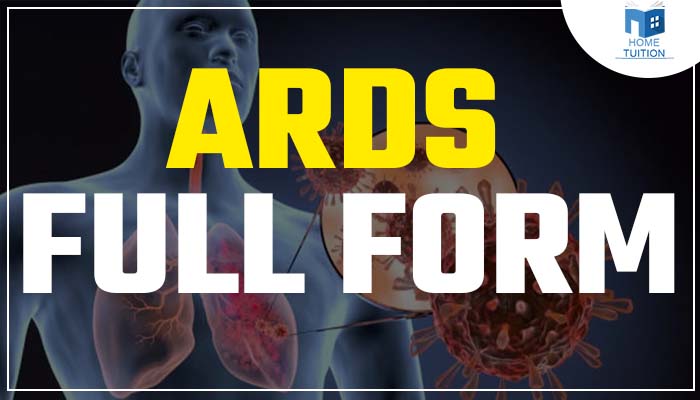About Full form of ARDS
Acute Respiratory Distress Syndrome is the full form of ARDS. ARDS is a condition of respiratory failure that occurs after fluid builds up in the lungs, causing distress, so oxygen can't reach the organs. Fluid will leak from the blood vessels, leading to fluid collecting in the tiny sacs in the lungs that are known as alveoli, resulting in less air being collected in the sacs. This is because the blood cannot pick up enough oxygen from the lungs, causing less oxygen supply to the rest of the body. Thus, organs that need more oxygen may not receive enough oxygen, which can cause a hindrance in their function, causing them to stop working. ARDS needs to be diagnosed early for better treatment and early recovery. In short, ARDS impairs the lungs' capacity to exchange oxygen and carbon dioxide and causes organ damage.
Causes of ARDS
- Trauma: Any injury to the lungs can cause damage and thereby disrupt the normal mechanism and function of the lungs, thereby disrupting the regular supply of oxygen to the lungs and other organs of the body.
- Pneumonia: A infection of the lungs caused by fungi and bacteria that cause inflammation of the alveoli, which prevent the proper exchange of oxygen and carbon dioxide because they are filled with pus and fluid. This can also become a cause of ARDS.
- Sepsis: This occurs when there is an infection in the blood that triggers the immune system and causes inflammation, bleeding problems, and also blood clots that can lead to ARDS.
- Smoking: Breathing in harmful fumes can cause lung disease.
- Aspiration: Among several reasons for ARDS, food, other gastrointestinal substances, or any secretions from the pharynx may also enter the respiratory tract, causing difficulty.
Symptoms of ARDS
The symptoms and signs of ARDS can vary in intensity, depending on its severity and causes, as well as the presence of underlying lung or heart disease. They include:
- Confusion and extreme tiredness
- Severe shortness of breath
- Low blood pressure
- Labored and unusually rapid breathing
Risk Factor of ARDS
Most people who have developed ARDS are already hospitalized for another condition, and many are critically ill. You are extremely at risk if you have a widespread infection in your bloodstream (sepsis).
People with a history of chronic alcoholism are at high risk of developing ARDS. They are likely to die from ARDS.
Treatment of ARDS
The first line of treatment contains a better supply of oxygen so that the organs function properly. This is done with supplemental oxygen if symptoms are mild. If symptoms are worse than mechanical ventilation, it is considered. If the patient requires intravenous fluid, it should be administered cautiously to prevent fluid accumulation in the lungs.